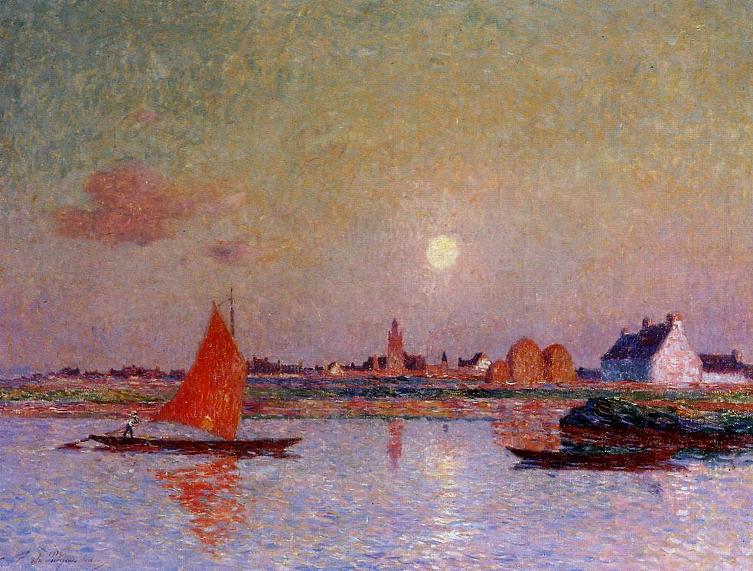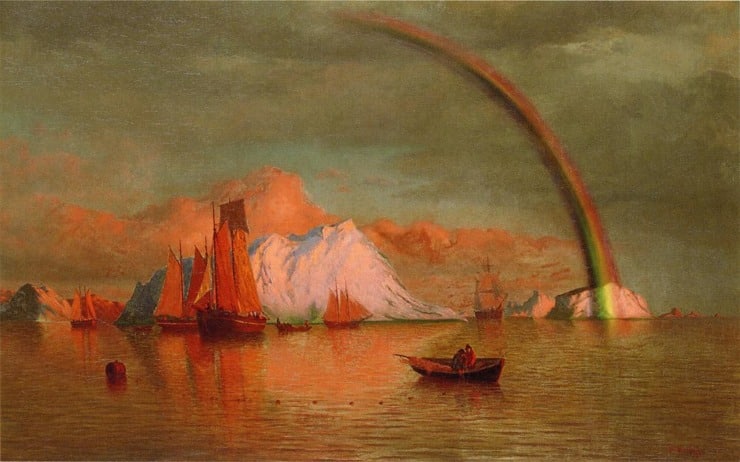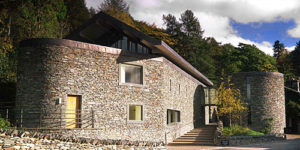< Return to all Wordsworth poems
Lines Written While Sailing in a Boat at Evening
How richly glows the water’s breast
Before us, tinged with evening hues,
While, facing thus the crimson west,
The boat her silent course pursues!
And see how dark the backward stream!
A little moment past so smiling!
And still, perhaps, with faithless gleam,
Some other loiterers beguiling.
Such views the youthful Bard allure;
But, heedless of the following gloom,
He deems their colours shall endure
Till peace go with him to the tomb.
—And let him nurse his fond deceit,
And what if he must die in sorrow!
Who would not cherish dreams so sweet,
Though grief and pain may come to-morrow?
—William Wordsworth
Enjoy Artistic Representations of “Lines Written While Sailing in a Boat at Evening” by William Wordsworth

The Return of the Sailboa by Ferdinand du Puigaudeau.

Arctic Sunset with Rainbow by William Bradford, 1877.
Listen to these Readings of “Lines Written While Sailing in a Boat at Evening”
Listen to this Musical Interpretation of “Lines Written While Sailing in a Boat at Evening” by William Wordsworth
About William Wordsworth
William Wordsworth, an English poet born in 1770, is credited with having a strong impact on the poetry of his time. He worked with Samuel Taylor Coleridge to publish a collection, Lyrical Ballads, which includes poems believed to be among the most influential in Western literature. With this publication, the two helped initiate English literature’s Romantic Age.

Jerwood Centre at the Wordsworth Trust in Grasmere
Wordsworth also worked to increase the accessibility of poetry, encouraging the use of more common language, and promoting the virtues of lyric poetry.
While in college, Wordsworth went on a walking tour of England and lived for a time in France, where he was greatly impacted by the French Revolution. His earliest work was published in 1793.
His most famous work, The Prelude, was published by his widow in 1850. He worked on the semi-autobiographical poem throughout much of his life, never quite satisfied to publish it.
Wordsworth served as England’s Poet Laureate from 1843 until he died in 1850.